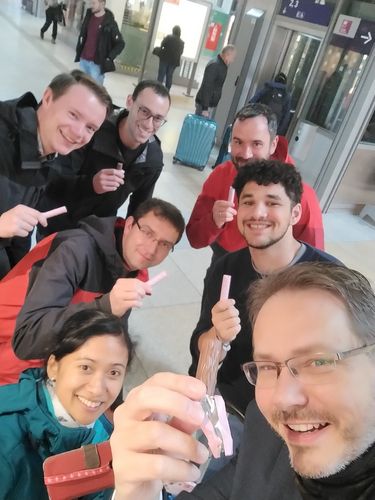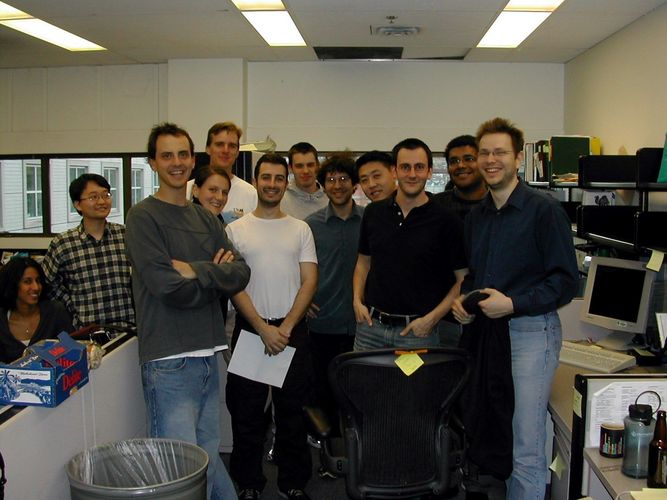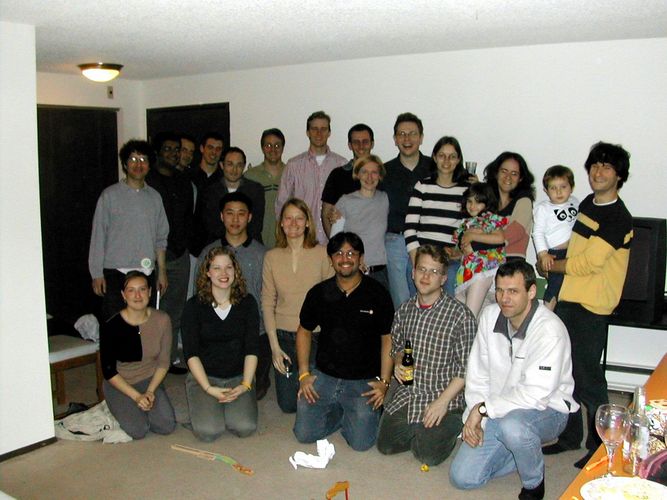Jens Meiler, who was born in Leipzig, is one of the world’s most renowned researchers in the field of computer-aided drug design and has been a Humboldt Professor at Leipzig University since 2019. Meiler himself has played no small part in the success of his former mentor David Baker. “I did my postdoc with David Baker from 2001 to 2005, where I also programmed part of the computer code for which he is now receiving the Nobel Prize. Winning a Nobel Prize is almost always the result of a team effort. This is also the case here,” says the Humboldt Professor, who uses digital simulations and artificial intelligence at his Institute for Drug Discovery to model proteins that are attractive starting points for a variety of drugs. “We are actively pursuing this line of research at the Institute for Drug Discovery, and have initiated several major projects in the field of protein design,” says Meiler.
Nobel Prize: Sneaking suspicion two decades ago
When he joined Baker’s research group in Seattle in 2001 after completing his doctorate, he had turned down several other offers. Meiler recalls that he felt he was in the best of hands with Baker, both scientifically and socially. “We are on the same wavelength personally. He is a great guy,” says Meiler. Together with Baker and eight other colleagues, he was already tackling the problem of protein folding and protein design – and even then, had a sneaking suspicion that Baker might one day receive a Nobel Prize for his work.
“In the human body, proteins are synthesised and folded millions of times a day. We write computer programs that predict this process,” says Meiler. He adds that this was always the biggest challenge. And that Baker already had the most promising approach back then. “It was quite unique at the time. We even used artificial intelligence,” recalls Meiler. In his private life, too, he also spent a lot of time with Baker and the other researchers in the working group. Hiking and partying were the order of the day. “I have lots of photos of our farewell party,” says Meiler. Like him, each of his young colleagues in Baker’s working group received their own professorship at a US university in 2005.
Rosetta Commons research network combines expertise
In order to continue to improve protein design despite this, Baker founded the Rosetta Commons research network, on whose home page more than 1,000 collaborators now congratulate Baker on his Nobel Prize. The researchers share information through this community. Since Meiler has been researching and teaching at Leipzig University, it has also been part of this network. “He kept us all together through Rosetta Commons. David is a team player,” says Meiler. Incidentally, he and his team in Leipzig are currently developing software for vaccines against viruses that could one day cause a pandemic.
Meiler is still friends with Baker. They meet at least twice a year at conferences or workshops. He knows that their reunions are always very warm. In terms of developing algorithms for protein folding and design, there is still a lot of work to be done, says Meiler.































































